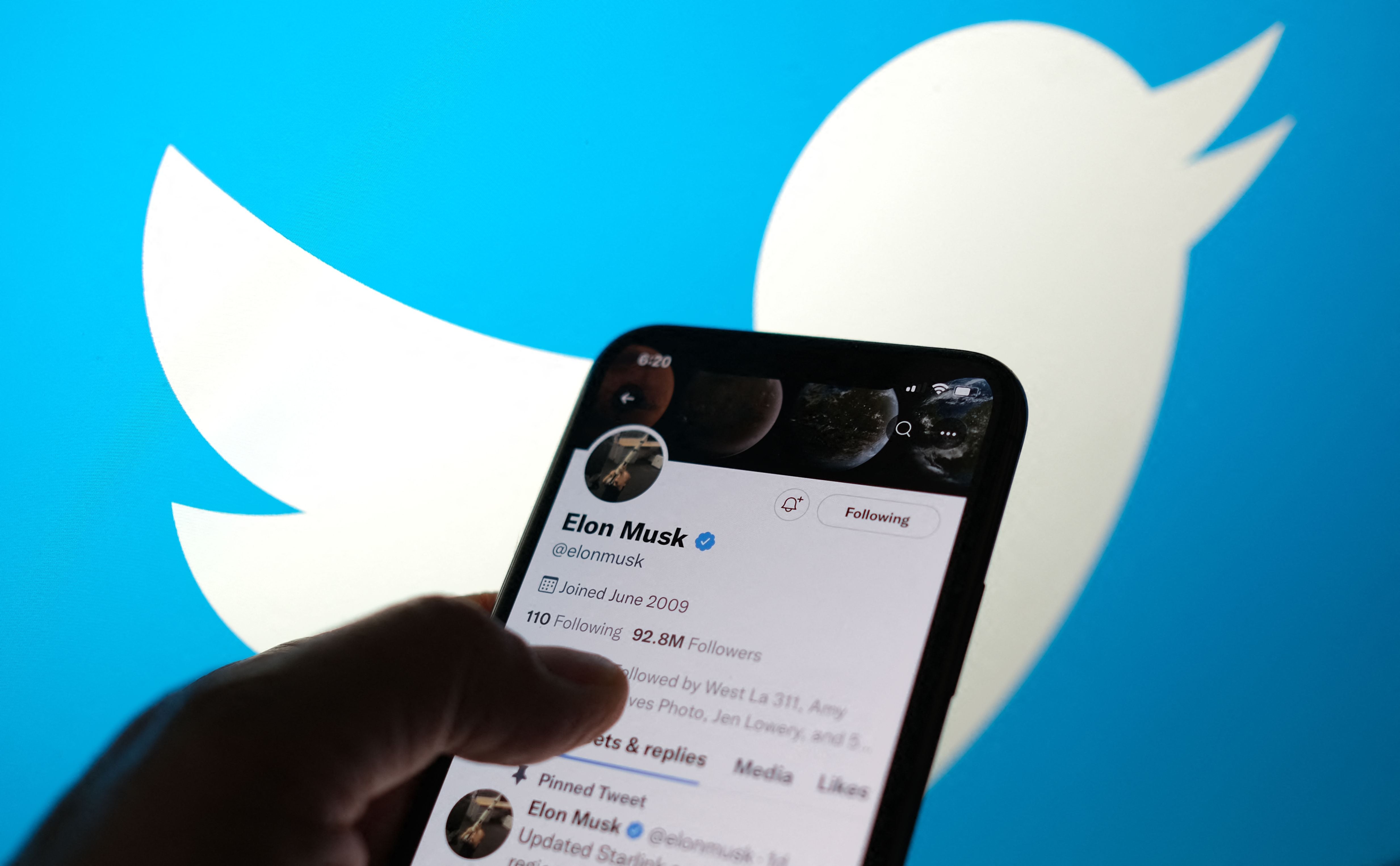Twitter launches new misinformation policy ahead of Elon Musk’s ‘free speech’ takeover
Twitter’s new rules solidify the temporary changes it made to policy as Russia invaded Ukraine

Twitter has unveiled a new crisis misinformation policy, making permanent the temporary measures it announced during Russia’s invasion of Ukraine – but the change could clash with the ideology of Elon Musk, who is set to purchase the company.
“Conversation moves quickly during periods of crisis, and content from accounts with wide reach are most likely to rack up views and engagement. To reduce potential harm, as soon as we have evidence that a claim may be misleading, we won’t amplify or recommend content that is covered by this policy across Twitter – including in the Home timeline, Search, and Explore,” Twitter’s Yoel Roth, its head of safety and integrity, wrote in a blog post.
“In addition, we will prioritise adding warning notices to highly visible tweets and tweets from high-profile accounts, such as state-affiliated media accounts, verified, official government accounts.”
Twitter defines a crisis as “situations in which there is a widespread threat to life, physical safety, health, or basic subsistence”, a definition that it says is in line with the United Nations’ classification.
Should a tweet be found misleading, Twitter’s label will hide it but not remove it from the site. “This tweet violated the Twitter rules on sharing false or misleading info that might bring harm to crisis-affected populations,” the label reads. “However, to preserve this content for accountability purposes, Twitter has determined this tweet should remain available”.
Twitter expects this rule to cover a vast array of content, including false coverage and event reporting, misleading allegations about the use of force, false claims of war crimes or mass atrocities, and false information about sanctions and humanitarian operations.
The new policy will complement existing Twitter rules that prohibit digitally manipulated media, false claims about elections and voting, and health misinformation, including debunked claims about Covid-19 and vaccines.
But it could also clash with the views of Tesla billionaire Mr Musk, who has agreed to pay $44bn (£35bn) to acquire Twitter with the aim of making it a haven for “free speech”.
Mr Musk hasn’t addressed many instances of what that would mean in practice, although he has said that Twitter should only take down posts that violate the law, which taken literally would prevent any action against most misinformation, personal attacks and harassment.
He has also criticised the algorithms used by Twitter and other social platforms to recommend particular posts to individuals.
The first iteration of this policy came from Russia’s invasion of Ukraine, during which the Kremlin has been propagating allegedly false claims – resulting in Twitter moderating official government accounts.
In February this year, Twitter restricted access to Russia in order to keep “our service safe and accessible”. In response, the Russian government blocked Twitter – and Facebook – in the country.
One month later, Twitter removed a tweet from the Russian embassy which suggested a hospital attacked by Kremlin forces in the port city of Mariupol had been “long non-operational” and was being used by Ukrainian armed forces and “radicals” – a claim the UK’s culture secretary condemned as “fake news”.
A senior Ukrainian cybersecurity official, Victor Zhora, welcomed Twitter’s new screening policy and said that it was up to the global community to “find proper approaches to prevent the sowing of misinformation across social networks”.
Emerson Brooking, a senior fellow at the Atlantic Council’s Digital Forensic Research Lab and an expert on social media and disinformation, said the conflict in Ukraine shows how easily misinformation can spread online during conflict, and the need for platforms to respond.
“This is a conflict that has played out on the internet, and one that has driven extraordinarily rapid changes in tech policy,” he said.
Additional reporting by Associated Press
Join our commenting forum
Join thought-provoking conversations, follow other Independent readers and see their replies
Comments
Bookmark popover
Removed from bookmarks